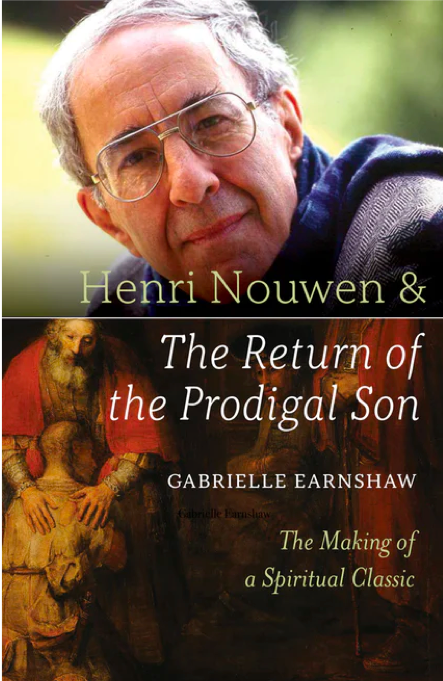Reading: Introduction, A Note About Sources, Chapter 1 – The Collapse, November 1983
Nouwen shows us that we too can return home. We have not ruined everything with our bad choices, doubts, or shortcomings.
We can start again. We can be reborn. And our
loving God will run to meet us. (p. 7)
Welcome to each of you. We have a wonderful group of devoted Henri Nouwen readers gathered from across North America, England, Egypt, and Australia for what promises to be a unique discussion. For the first time, we are reading and discussing a book about Henri rather than a book by written by Henri himself. This provides us with the special opportunity at the bottom of this post.
We will be guided by Gabrielle Earnshaw as she contributes to our understanding of Henri and his most popular book, The Return of the Prodigal Son. Through Gabrielle’s comprehensive “biography” of this classic spiritual book and her revealing and sensitive biographical sketch of Henri Nouwen, we will see why encountering Rembrandt’s painting and writing his book were life-changing for Nouwen, and for many of his readers as well.
Gabrielle brings her two decades of experience as Henri’s archivist and editor to bear and this week she prepares us to journey along with Henri on his, and our, “return home.” You will be introduced to Henri’s friend Sue Mosteller, CSJ and learn about the Henri J. M. Nouwen Archives and Research Collection that Sue, as Henri’s literary executrix, established in Toronto and that Gabrielle archived and made the definitive source for studying Nouwen’s life and work. In Chapter One, Gabrielle walks us into Nouwen’s world and allows us to see and begin to experience Henri’s loneliness and anguish as she describes his first encounter with Rembrandt’s The Return of the Prodigal Son and considers why it made an immediate and significant impression on him.
You are encouraged to share and discuss whatever came up for you in the readings and to respond to the comments of others. Here are some excerpts and questions that may help to get the discussion going, but please don’t feel bound to them.
- (F)reedom. . . is to enter a second childhood as expressed by Jesus. . . It is a movement away from compulsions and addictions to a life. . . in which we forgive others, serve them, and form a new bond of fellowship with them. (p. 6-7) What is your reaction to this definition of freedom in light of our world today?
- “Do you love me?” was (Henri’s) primal cry for love and affection. . . that perplexed his parents. In Intimacy, the search for love is equated with the search for home. . . Nouwen is on a quest for home. . . (p. 18) What is your response to this image of home? Aren’t we all on a quest for home?
- (W)hat we might consider is that Nouwen experienced a father with a “work-to-earn love” ethos. From his father he learned that worldly success was a means to gaining love. (p. 23) Gabrielle explores the importance of Henri’s relationship with is father in some detail. Does this help you to better understand his journey? How about your own journey and your relationship with your father and God?
- Sipe concludes, “Nouwen was the genuine article. He was exactly what he appeared–a priest struggling for integrity, exhausting himself in the service of others.” (p. 30) What insights did you gain about Henri’s search for intimacy, his commitment to celibacy, and his sexuality? Does looking at Henri as a “priest struggling for integrity” affect your understanding of his life and writing?
- (H)e began to see that the painting was actually a “large gate” for him to meet the One he had been searching for since he was born–“the God of mercy and compassion.” (p.32) The painting was a “large gate” for Henri. His writing was a “large gate” for me and many others. Does this ring true in your life?
The thoughts and insights many of you share provide the heartbeat for every Henri Nouwen book discussion. We also welcome those following along silently.
Our friends at Paraclete Press have allowed us to post the virtual book launch they held for this book last month. Gabrielle, along with well-known spiritual writer Fr. Ron Rolheiser, were interviewed by Karen Pascal, the Executive Director of the Henri Nouwen Society. The event lasts a just over an hour. (Note: The first 3-1/2 minutes are silent with book excerpts and photos of artifacts from the archives. Then the discussion begins.) I encourage you to watch. It’s excellent. (Note: The video will be available this week only.)
For more information and resources, visit the the Paraclete Press book launch page. To purchase additional copies of the book, visit the Paraclete Press website.
We look forward to a great week of sharing.
Ray

